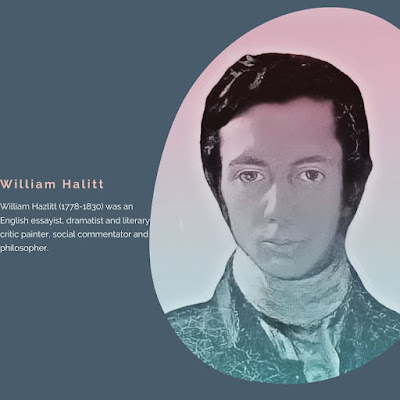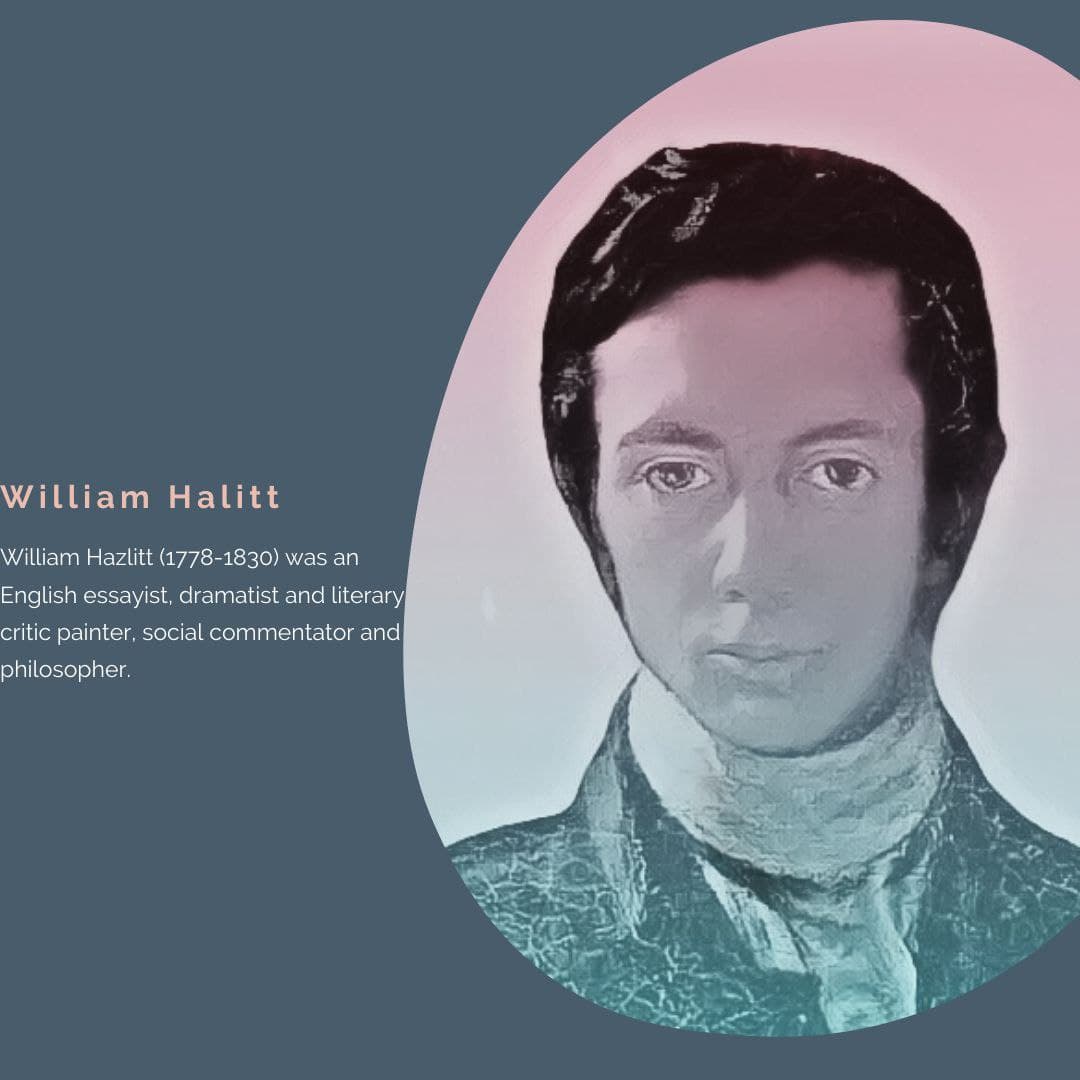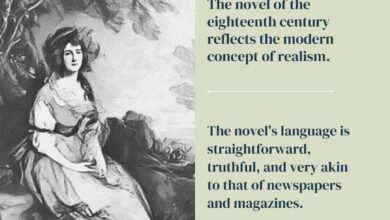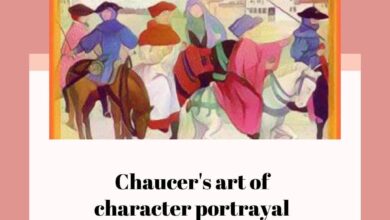Critical appreciation of william hazlitt essay On Nicknames

William Hazlitt has titled the essay (On Nicknames) ‘Hae nugae in seria ducunt‘, meaning “These titles leads to serious consequences.’ He continues to state that the topic of nicknames could seem frivolous and uninteresting at first; however, it’s actually a matter of serious concern due to the severe consequences that result from the use of nicknames for people.
Nicknames govern the world
Every major event that has shaped humanity’s destiny is evidence of the fact that nicknames have controlled the world. Nicknames encourage people to express their uncontrollable passions and stem from prejudices, regardless of how absurd they may be. They’re, in actual frequently used to justify more sinister impulses of bigotry and hate and are used to categorize certain segments of society to identify them as offensive or insensitive. As with certain products in the market, nicknames are also accessible for use in any way, whether at home or abroad, and on any occasion.
William Hazlitt gives examples of how nicknames are the root of intense hatred between people who belong to two distinct religions or countries and people with different backgrounds, cultures, or convictions. The most ironic thing is that when a rival party is called a party with a specific “name,” the name-caller creates a certain image of himself. The image, in turn, is influenced by the image of the opposition party: ‘A Whig is a sign of the term Tory and there should there be “Malcontents” as well as “Malignants”; Jacobins and anti-Jacobins. English as well as French.’ These names are a result of the hatred that two groups have for one another.
A name can be as great or even worse than the other. Still, the irrational prejudices, prejudices, and passions they express create irrational biases, and passions among others. If there is a conflict between two nations and their people, each country will be convinced they are right to engage in the war. This is the case with the competition in the conflict between England as well as France.
Read more Lord Byron as a Romantic Poet
William Hazlitt believes it’s unnecessary to assert that “governments are not going to war in vain because If both governments feel legitimate, they will all be right. This could not be the case. The sole reason people choose to give others nicknames is that they deeply disapprove of something, be it religion, opinions, or skin color that is distinct from the other person. They forget that they ought to be able to be ashamed of themselves for being different from everyone else.
Rational people do not often use verbal assaults on other people. Some situations force people to resort to indecency and rudeness. People who are strongly against something and can provide an argument that supports their stance aren’t those who call other people names. Before expressing a view of something, one must ensure that one does not have a resemblance to the person who indulges within the same. The people who are the most enraged tend to be the most hypocritical.
William Hazlitt also expresses his doubts regarding whether satirists condemn morality or vice due to moral indignation or an urge to change or if the reason is to satisfy his desire for sexuality. Nicknames can be used as a tool to use against troublemakers because the logic of evidence or reason does not back them. They may be little words; however, they are powerful and powerful due to the concepts associated with their use.
A single word can have the power to cause a devastating and immediate effect. In the words of Hazlitt beautifully states, “It’s an insult and a word.’ People who refer to others by nicknames do not take note of the logic or the facts that underlie the actions or attitudes they despise. They just find a term full of connotations and insinuations that can trigger the subconscious attitudes of the majority. The term is often obscure and ambiguous, so it isn’t easy to defend against it.
In the absence of any understanding of what a nickname might mean, people are hesitant at times and even hostile. If they feel threatened by something, they respond quickly before any rational thought can stop them. The weaker people tend to be more violent and offensive as they’re uneasy about their actions and thoughts. A nickname bears the weight of pride, cowardice, indolence, ignorance, and the human nature of the world to its back. It is easy to divert attention away from one’s shortcomings and flaws by directing attention away from someone else’s, and it is a great method to accomplish this.
When a nickname labels a person, it’s for life, and people are not inclined to consider the opposite aspect of the story since they will be bringing their logic back, which is not as exciting as getting one’s thoughts out. If a friend of yours is referred to as a nickname, the relationship we share with him will probably suffer as in our minds, and the person will always be identified with the meanings implied by the nickname.
To avoid being called these names, we have to sooner or later abandon the person who is nicknamed. Although certain names may be used without intention to harm in mind, they can diminish the reputation of public people that they’re applied to simply because they are nicknames. The familiarity that comes with abbreviated names can diminish the admiration previously displayed by such people. Political writers often make use of nicknames to convey a sense of disdain for their adversaries.
Many people also teach their pets parrots to call their neighbors by name. The effect, however, is just as tragic, even although the medium is an animal. Nature has been believed to have outfitted every creature with a weapon or another to protect themselves. Hazlitt suggests that the most primitive of creatures have nicknames.
William Hazlitt recalls an amusing story regarding a professor named Dr. Topping and his pupil, who was unsuccessful in receiving the doctor’s attention. This caused the whole theater to shout out the doctor’s name, clearly causing him to be embarrassed.
See more realism in Robinson Crusoe
Addressing people using Christian names or even surnames could be a symbol of affection. Friends usually address one another using short versions that are their names. Hazlitt notes how Johnson’s name for his buddy Goldsmith (‘Goldy’) may seem a bit disrespectful; however, it’s certainly a sign of their friendship. However, unlike nicknames, the titles of honor are designed to convey an emotion of respect.
Although the titles are little on their own, they are a source that evokes respect (The ghost of the title is still there). William Hazlitt concludes the essay by pointing out that names that sound impressive can inspire admiration for the individual to whom it is attributed. So, even though the general public is unaware of the work of Michelangelo, He is respected simply because of his impressive name.
William Hazlitt writing style
In his essay on nicknames, William Hazlitt has interspersed the many elements that made one of the greatest essay-writers of the day: his wide studying, insightful observations, and open-minded attitude. In his simple, incisive style, Hazlitt exposes the hypocrisy in the form of narrow-mindedness and bigotry that pierce the social divide and are just as prevalent in the present society as it was two hundred years back. The sharp, attentive eye can see right away that the seemingly innocent act of calling names is, in fact, an expression of deep-seated feelings of distrust and hatred and can have serious consequences.
In a clear and logical style, Hazlitt makes his case against the use of nicknames and makes clear his argument with examples derived from his research and personal experiences and his own experiences with historical events he’s seen.
He shows his in-depth understanding of human psychology by stating with a unique insight: “The emotions are the most difficult to understand when they are hidden …, and, “That malignity is always the most implacable, accompanied by a sense of weakness. The greatest prudes have been often accounted the greatest of hypocrites.” One characteristic of his style that can be seen in his essay is his love of the most appropriate quote expertly woven into the overall essay.
For instance, in explaining why nicknames can cause an impact that is so devastating, Hazlitt states, ‘Causa causae”causati” which means the source of the effect is the reason of the impact.’ In addition, about the status people can enjoy because of the honorific titles attached to their names, the author says “Stat Nominis Umbra” which literally means “There is the shadow of an identity.’





